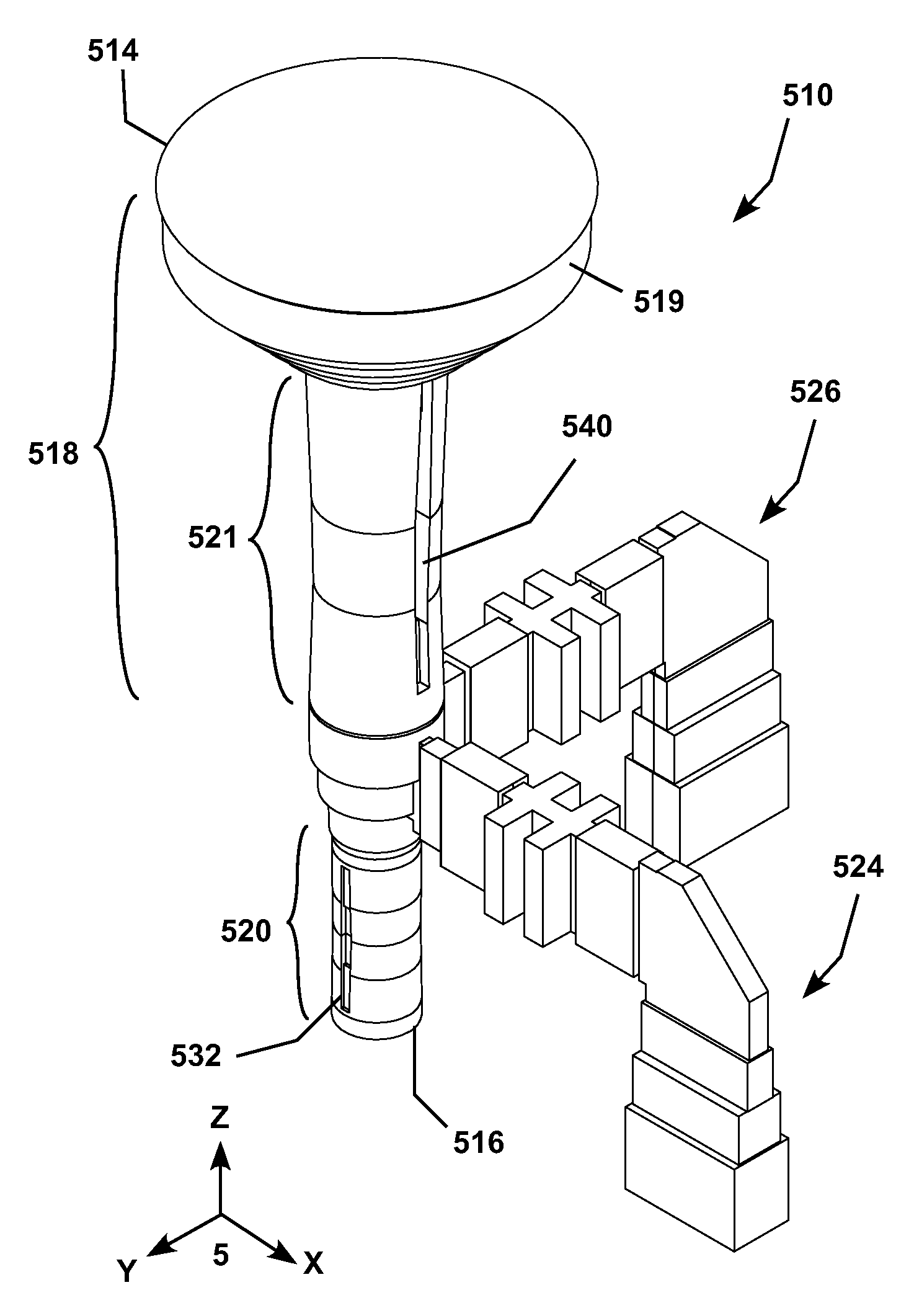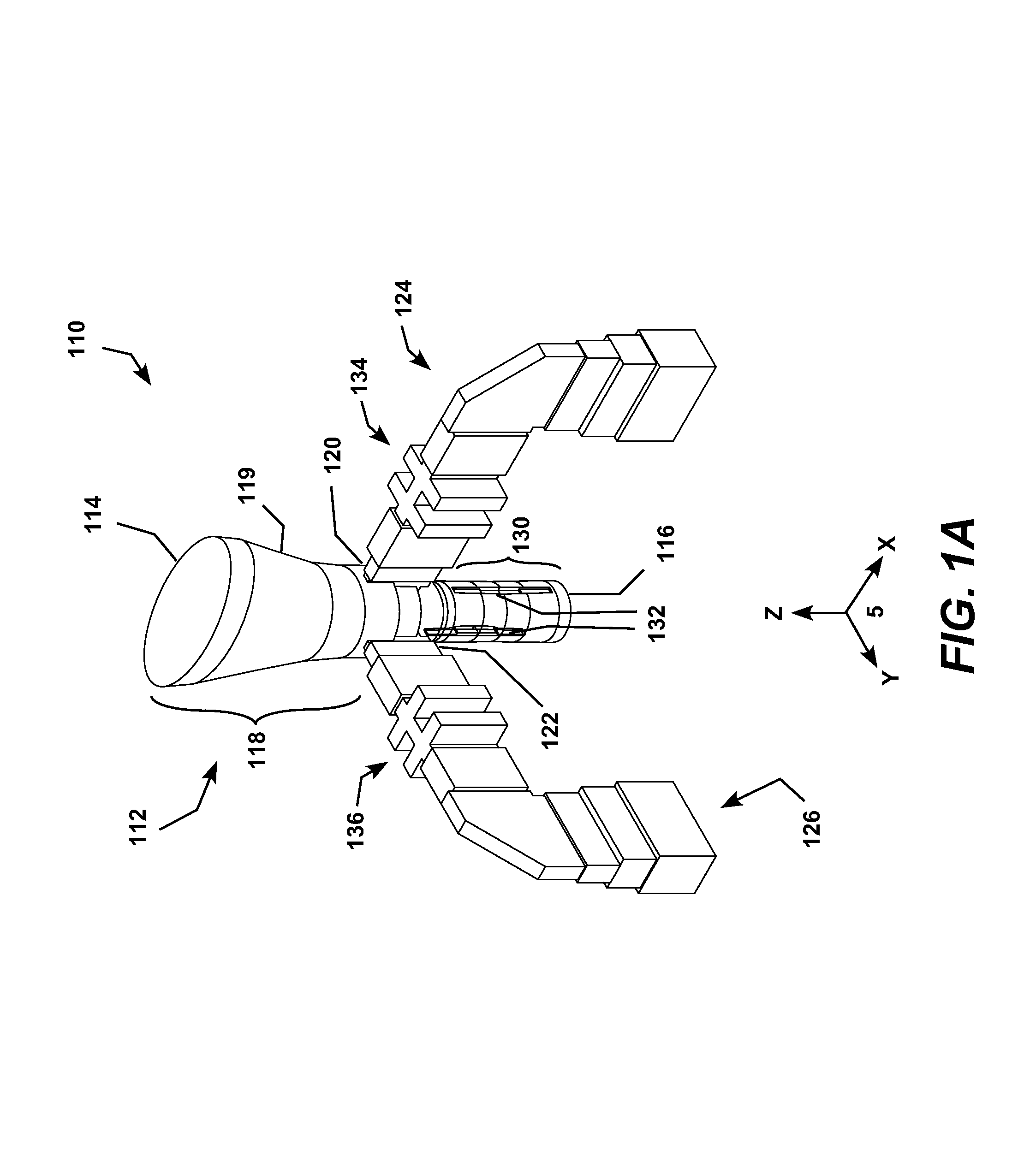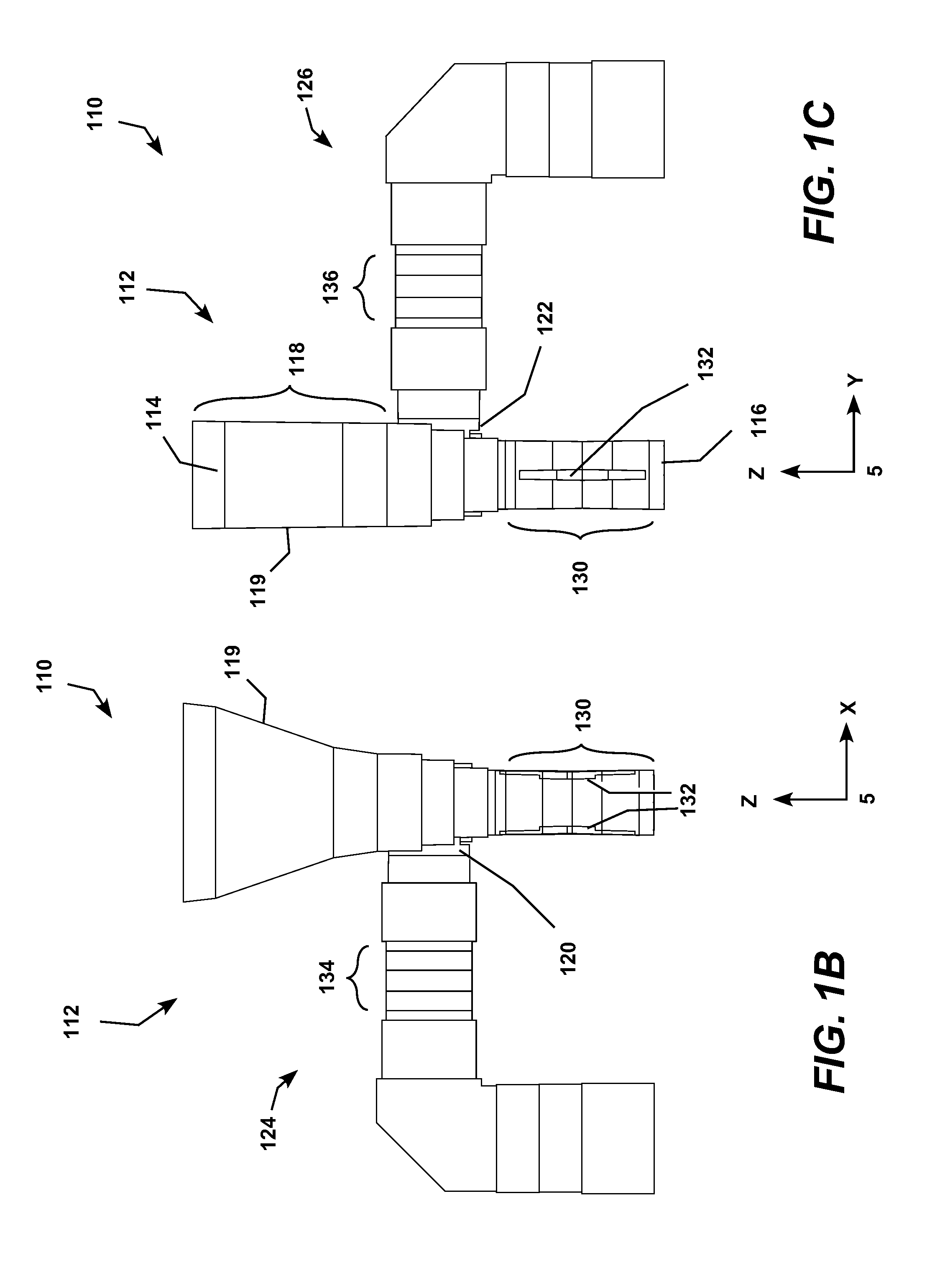Multi-band antenna for simultaneously communicating linear polarity and circular polarity signals
a linear polarity and circular polarity technology, applied in the direction of simultaneous aerial operations, antennas, waveguide horns, etc., can solve the problems of inability to disclose multi-band antennas for simultaneously receiving linear polarity combinations, difficult to design and cost effectively produce and deploy in large quantities, and complex dvbs antenna systems for communicating with satellites
- Summary
- Abstract
- Description
- Claims
- Application Information
AI Technical Summary
Benefits of technology
Problems solved by technology
Method used
Image
Examples
Embodiment Construction
[0051]The present invention may be embodied as improvements to the multi-band DVBS antennas described in U.S. Pat. Nos. 7,239,285 and 7,642,982, which are incorporated herein by reference. These patents teach the use of oppositely sloped phase differential transition sections including various combinations of internal ridges (including septums and corrugations, which are varieties of internal ridges) with oblong and circular horns to improve the bandwidth performance of the antennas. They also disclose multi-band antennas using these techniques for multiple circular polarity signals but do not disclose multi-band antennas for receiving combinations of linear polarity and circular polarity signals. Simultaneously communicating circular and linear polarity signals is challenging because the structures of the antennal must be designed to simultaneously polarize the circular polarity signals without adversely affecting the linear polarity signals. The embodiments of the present inventio...
PUM
 Login to View More
Login to View More Abstract
Description
Claims
Application Information
 Login to View More
Login to View More - R&D
- Intellectual Property
- Life Sciences
- Materials
- Tech Scout
- Unparalleled Data Quality
- Higher Quality Content
- 60% Fewer Hallucinations
Browse by: Latest US Patents, China's latest patents, Technical Efficacy Thesaurus, Application Domain, Technology Topic, Popular Technical Reports.
© 2025 PatSnap. All rights reserved.Legal|Privacy policy|Modern Slavery Act Transparency Statement|Sitemap|About US| Contact US: help@patsnap.com



